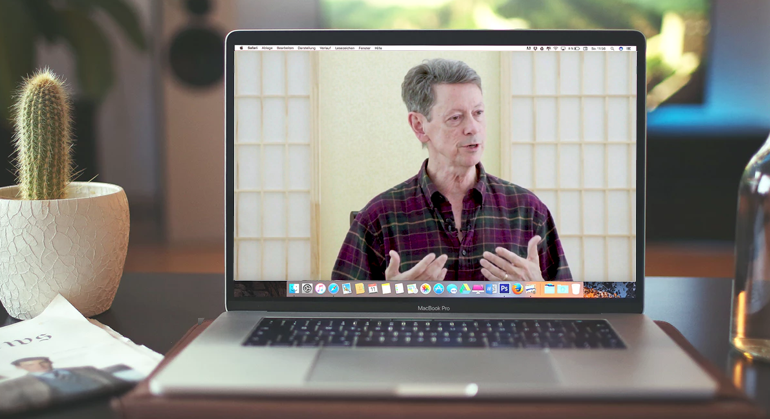28 May Three Ways to Work with the Mind
Without steadiness of mind, it’s difficult to be productive, peaceful, or helpful to other people. To aid in cultivating a more steady mind, Dr. Rick Hanson offers three fundamental ways in which you can work with it.
This is a clip from Dr. Hanson’s Neurodharma online program, which begins on May 29, 2021. Click here to learn more or register.
Transcript:
If the mind is scattered, it’s dispersed, it’s clouded, if it’s lost in distractions, lost in ruminations or fantasies of various kinds, it’s really difficult to practice in any effective way, or even function very well or be able to be of much help to other people.
On the other hand, steadying the mind—being able to plop attention on something useful and keep it there, or recognize that what we’re attending to is not so useful and move it elsewhere—moment by moment, is not so easy.
In this context, it’s useful for me to think about three fundamental forms of practice. You may observe all three of these forms.
The first fundamental way to engage the mind usefully is simply to be with what’s there. Experience the experience. Feel the feelings. Be present with what’s there (hopefully skillfully).
Holding it in a field of awareness with compassion for yourself, interest, and curiosity. Perhaps disentangling the threads of the tapestry of experience. (Disentangling was a metaphor frequently used by the Buddha.) It’s useful often to sense down into, feel into what is deeper or fundamental, such as the hurt beneath the anger or the younger layers and the parfait of the psyche.
In the process of that being with, the content of consciousness may change, but we’re not trying to change it directly. We’re not exercising wise effort to nudge it or influence it deliberately. That, in my view, is the most profound form of practice. So I think the bulk of the mind moments that are useful here are under the heading of simply being with what’s there again and again and again, continuously receptive to what’s there.
And, it’s not the whole of the practice. Even though being with what’s there is most fundamental—because often it’s all we can do to ride out the storm without pouring gasoline on the fire, is simply be with what’s there.
Also, as practice matures, increasingly the other modes of practice I’ll speak of in a moment tend to fall away, there’s a kind of ongoing abiding, openly, continuously letting go.
But meanwhile, as the Buddha taught, there’s a place for working with the mind, not just being with the mind.
In the form first, under the heading of Wise Effort, of preventing or reducing or even ending those factors in the mind that lead to suffering and harm for ourselves and others. To use a bit of a problematic term, “negative material,” let’s say. So we deliberately, let’s say, release tension from the body or we deliberately recognize that what we’re thinking or believing is not helping us or others. And we let it go. If we are releasing deliberately, that’s under the general heading of that aspect of Wise Effort.
The third aspect is the cultivation, the development, the increasing of that which is beneficial to ourselves and others.
That which promotes happiness and welfare for ourselves and others. So over time we may cultivate wise-view, mindfulness, steadiness of mind, a warmer heart, resilience, and gratitude. We may cultivate skillfulness—how to interact with other people, including people that are really quite different from oneself.
So there’s a place for all of this.



